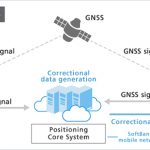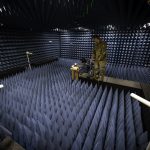Skykraft, an Australian company, has signed a Participating Project Partner Agreement for the “Demonstration of Collaborative Position Navigation and Timing (PNT) in Low Earth Orbit (LEO)” project. This agreement, supported by an International Space Investment (ISI) India Projects grant from the Australian Government, will promote joint space projects between Australia and India.
The primary goal of the project is to develop next-generation collaborative PNT systems. The project will demonstrate the feasibility of large-scale constellations in LEO, address the vulnerability of existing Global Navigation Satellite Systems (GNSS) in denied environments, explore additional applications for PNT signals that can be exploited from LEO, and provide a roadmap for enabling collaborative LEO-PNT through the demonstration of the resilience of large-scale constellations that can be easily updated and reconstituted.
In addition to advancing PNT systems, the project aims to improve environmental sensing through GNSS-Reflectometry (GNSS-R) and Radio Occultation (GNSS-RO) technology, providing a better understanding of the Earth’s oceans, droughts, and floods. These technologies will also enhance real-time space weather and terrestrial weather forecasting, as well as emerging applications like tsunami monitoring and warning, demonstrating the technical expertise of both Australian and Indian organizations.
Michael Frater, CEO of Skykraft, expressed his pride in leading this joint Australia/India project, which will establish a strong foundation for both countries to develop and launch a next-generation PNT system. He looks forward to working with partners from both nations to successfully deliver the project and encourage the development of an operational independent PNT system.






